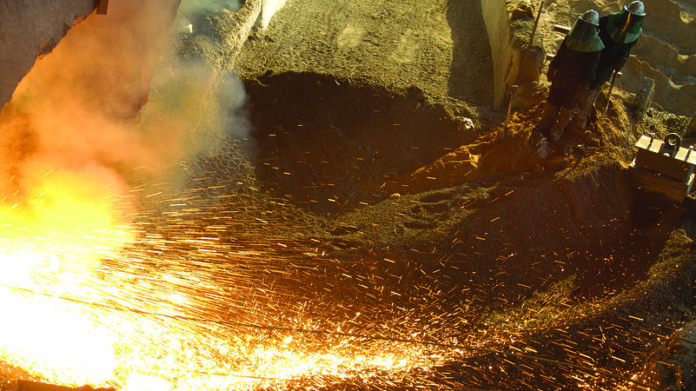
THE MINERALS Council of SA has reacted with alarm to the recent decision by Cabinet to approve in principle an export tax on chrome concentrate to arrest the decline in the country’s ferrochrome industry. This is not the first time that the South African government has approved such a tax and each time the Minerals Council has opposed it.
In mid-June, Merafe Resources, which has a pooling and sharing ferrochrome venture with Glencore, said it had suspended operations at its Wonderkop and Boshoek smelters after a business review. It said it was looking for cost-saving measures and policy interventions that could safeguard the future of SA’s ferrochrome industry.
The Minerals Council said SA had lost its position as the world’s biggest producer of ferrochrome due to China’s structural advantages, such as significantly cheaper electricity and labour and a lower cost of capital. SA’s ferrochrome smelters had been shut or mothballed largely as a result of a 900% increase in the cost of electricity over the past two decades. For these reasons, export taxes would not support increased local beneficiation.
The council welcomed Cabinet’s proposal to provide preferential electricity tariffs for ferrochrome smelters and special economic zones to provide tax breaks, but it said details were lacking. Extensive consultations would be needed with government to understand the proposals and which industries would benefit from them.
The council said Cabinet’s proposal that all chrome concentrate exporters be required to obtain an export permit from the International Trade Administration Commission (Itac) would be a good idea if it would prevent illegal exports of chrome, but it should not be expanded or used to impose export quotas or restrictions on legally-mined chrome.
Chrome mining has been one of the best-performing sectors in the mining industry, the council said. Citing Stats SA figures, it said in inflation-adjusted terms, chrome production rose by an average of 8.4% between 1994 and 2024 and producers had consistently grown employment. In 2024, chrome exports reached a record 20.5 million tonnes, earning R84.6 billion in export revenue.
The council said it was disappointed that there had been no consultation with the industry or other government departments on these proposals to ensure alignment on measures that would deliver economic growth, job creation, and a sustainable mining and processing sector.










